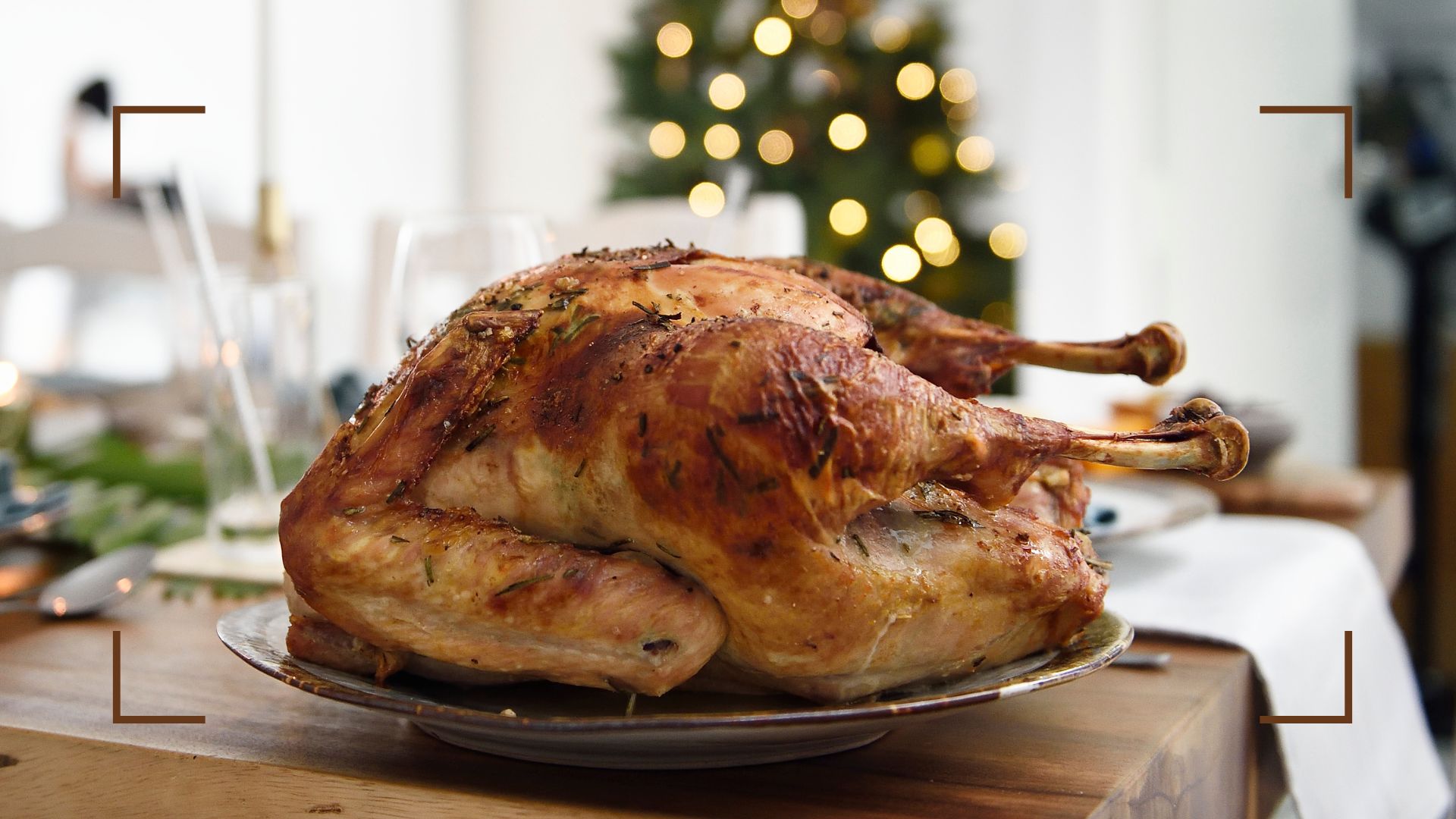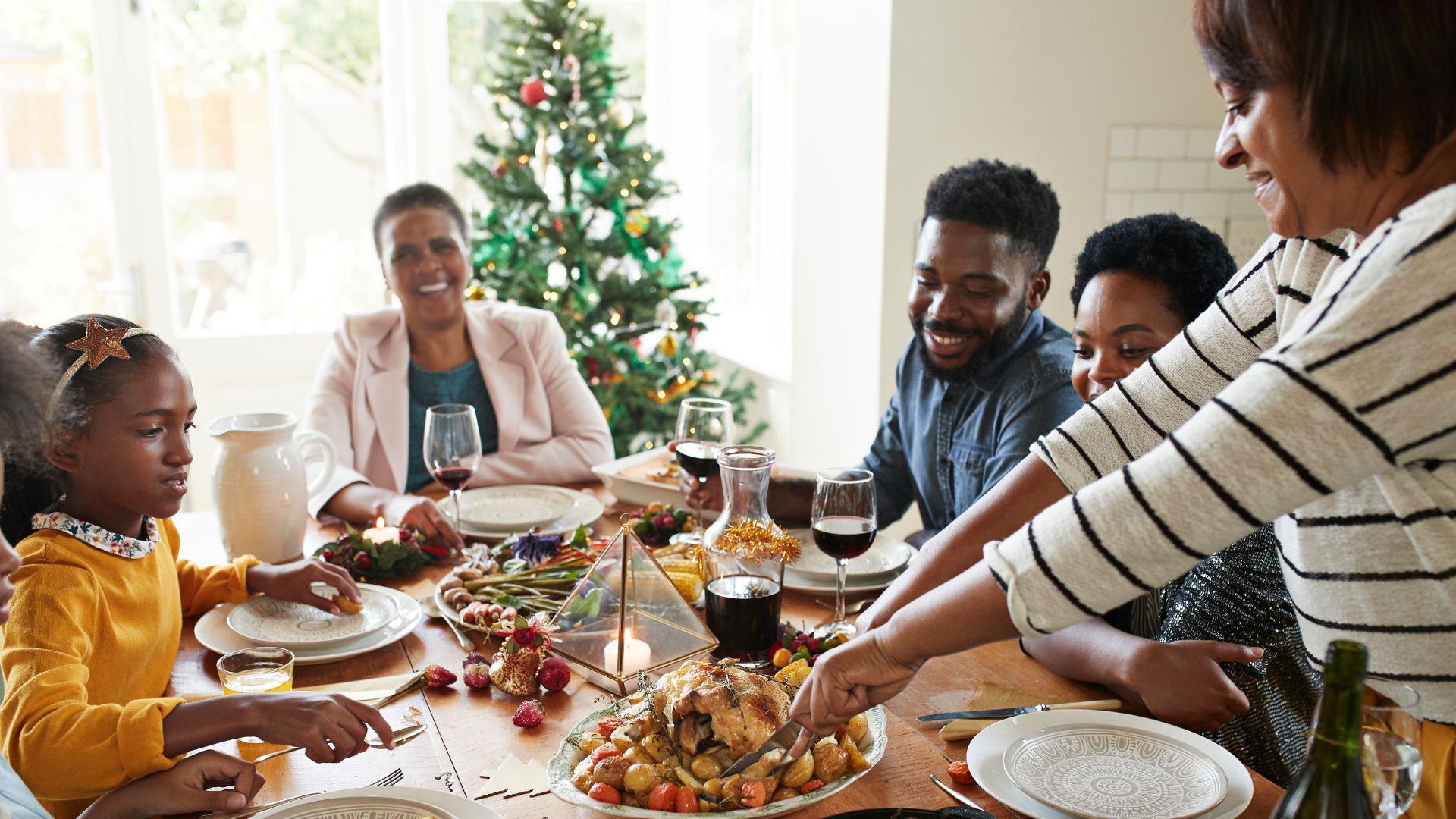Why does turkey make you sleepy? Plus, how to beat the Christmas Day energy slump
Nutritionist reveals why turkey makes you sleepy and how to get your Christmas Day back on track


Why does turkey make you sleepy? If you're a meat eater, you've likely heard of a 'turkey coma' or even experienced one yourself over Thanksgiving and Christmas. It's a feeling of intense tiredness following the classic festive dinner, which often comes complete with sides like potatoes and more than one glass of wine.
There's nothing wrong with calling it quits for the day and retiring to the couch to catch up on the Christmas specials - or even heading upstairs for a nap - but if you want to keep the festivities going, you're going to need to know how to beat the slump.
It's not traditionally one of the reasons why you might feel tired in winter, so we spoke to a nutritionist to determine why even the best turkey recipe can make you sleepy and how best to get over the hurdle, with exciting new meal suggestions to add to your table this year.
Why does turkey make you sleepy?
Turkey is a particularly unique bird, explains nutritionist Signe Svanfeldt, because it contains the amino acid tryptophan. "This is an amino acid that can create serotonin, which is a hormone involved in making us feel tired."
It's not just turkey that makes us feel sleepy though. "The Christmas holidays typically include plenty of heavy foods rich in saturated fats, sugar, and sodium, all of which should be consumed in moderation," says Svanfeldt, who is also the resident nutritionist at the healthy eating app Lifesum. "After eating heavy foods rich in sugar, our blood sugar spikes and then drops, which makes us feel low in energy."

How to beat the energy slump
1. Plan your Christmas dinner slightly differently
Beating the 3 pm Christmas Day energy slump is all about balancing out your blood sugar level. To do this, Svanfeldt explains, you should "try to eat foods rich in fiber, protein, and healthy fats."
While Christmas is typically focused on more indulgent foods, one of the best sleep aids for those looking to drift off quickly, she says you shouldn't be concerned about adding a few new nutritious dishes to the table if you're wondering what to eat when you feel tired. "Some of my favorite recipes are orange and pomegranate salad, maple-roasted carrots, or pear and cranberry salad, all of which can be found in the Lifesum app."
Sign up to our free daily email for the latest royal and entertainment news, interesting opinion, expert advice on styling and beauty trends, and no-nonsense guides to the health and wellness questions you want answered.
2. Try to balance eating throughout the day
Similarly, instead of typically eating the three meals a day we're used to, switching to a couple of smaller meals on Christmas Day could help see you through to the evening without a nap.
"Make sure to eat balanced throughout the day, and don’t skip meals," the nutritionist says. "Skipping meals can just make us feel like we are starving, which can lead to overeating later in the day."
3. Stay hydrated
With bubbles and Bucks Fizz flowing, it's easy to forget to drink water on Christmas Day, especially if you're staying at home. But this could be the reason why you feel tired come 3 pm as fatigue is just one side effect of dehydration.
"Not drinking enough can make us feel tired and dizzy," Svanfeldt says. "Make sure that you drink enough water. Sometimes we mix up the feeling of hunger with thirst and eat something when we’re thirsty, so make sure that you always have water available."
4. Go for a walk
With less free time than normal and more time spent away from home for some people, it's perfectly normal to take a break from any regular exercise regime you might have over the festive season.
However, sitting down all day equally has a big effect on our bodies, from our digestive system to our mood. So, as tempting as sitting down straight after lunch might be, if you're looking to beat the slump, take on a short walking workout outdoors.
"Even if you can't or don't want to go to the gym or do a heavy workout, try to include some sort of physical activity like a brisk walk or playing out in the snow."
5. Try to stick with moderation
Naturally, the simplest way to avoid feeling tired after eating is to eat less. This doesn't mean that you can't enjoy the full extent of Christmas dinner but stop eating when you feel full. Studies by the University of Bristol also show that the slower you eat, the more likely you'll be able to stick with your natural hunger cues.
The same goes for drinking, Svanfeldt says. "It's natural to indulge in alcohol during Christmas but try to drink alcohol in moderation. Having a glass or two will not cause any harm in healthy (non-pregnant) adults, but drinking excessively can impact our energy levels and sleep habits," she explains.

Grace Walsh is woman&home's Health Channel Editor, working across the areas of fitness, nutrition, sleep, mental health, relationships, and sex. She is also a qualified fitness instructor. In 2025, she will be taking on her third marathon in Brighton, completing her first ultra marathon, and qualifying as a certified personal trainer and nutrition coach.
A digital journalist with over seven years experience as a writer and editor for UK publications, Grace has covered (almost) everything in the world of health and wellbeing with bylines in Cosmopolitan, Red, The i Paper, GoodtoKnow, and more.